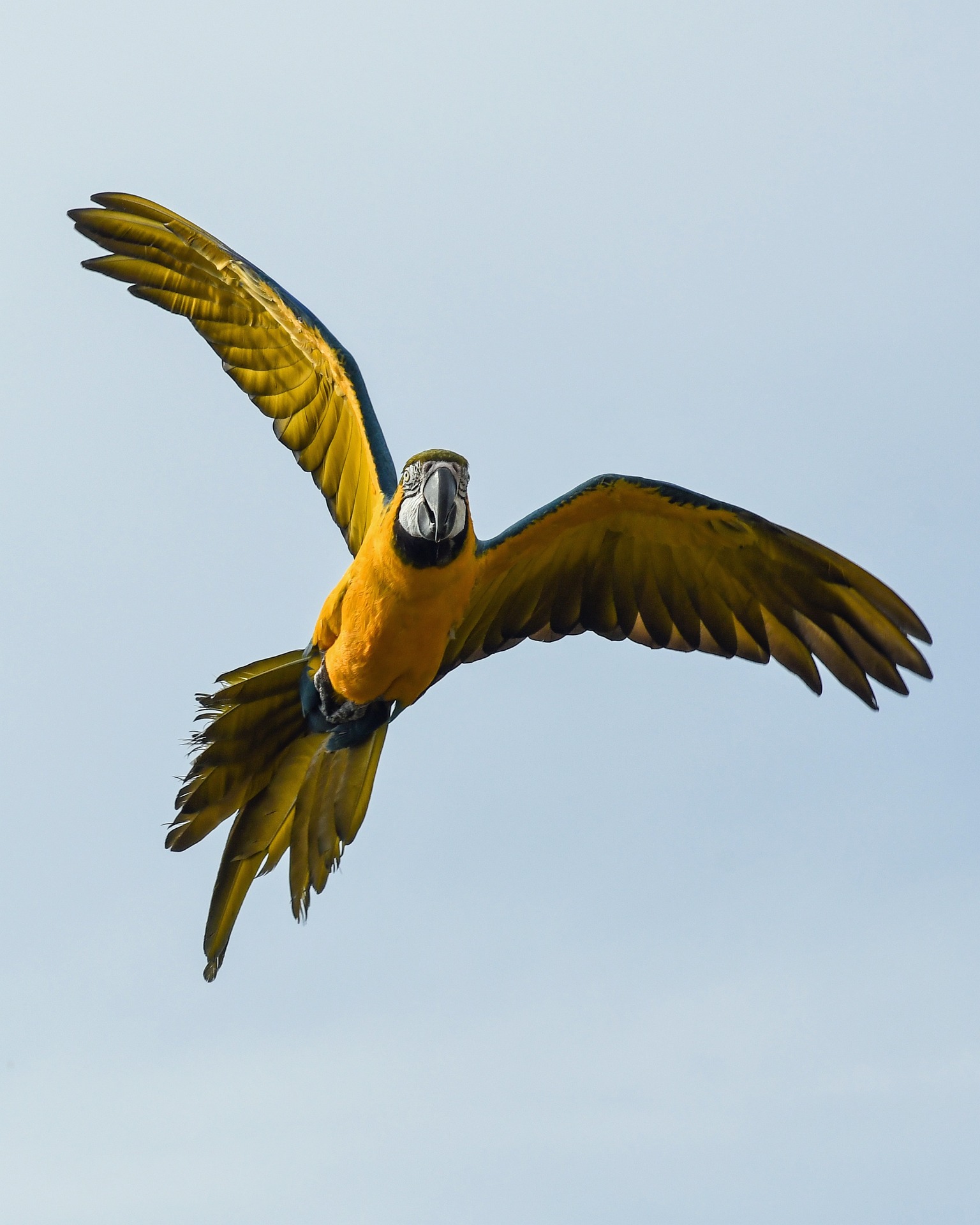How long do macaws live? What is a macaw? How do I take care of my macaw? These are all questions that pet bird owners will ask themselves at some point.
Macaws are brightly colored and beautiful birds. Macaw is a term used to refer to many species of parrots found primarily in Central and South America. There are about 17 different macaws species, each with its distinct appearance and personality.
They are giant parrots found in rainforests and jungles worldwide. The macaw’s coloration is spectacular; they have blue, green, and red feathers that make them stand out in a crowd. This coloration has made them popular as pets over the years.
Macaws are brilliant birds who love attention and interacting with people. Humans prize these birds for their beauty, intelligence, and ability to mimic human speech. However, it is essential to remember that an expert should handle these birds because they can be dangerous if they are not adequately trained or handled by someone who knows what they are doing.
CARING FOR MACAWS: HOW TO TAKE CARE OF YOUR PET BIRD
Typical Lifespan in Captivity and Wild
So how long do macaws live? Macaws have a life span of between 30 and 50 years. But in the wild, they are believed to live much shorter lives, with some individuals living only 20 years before dying of natural causes or being killed by predators.
However, it is essential to remember that macaws are wild animals and, as such, have very different needs than their captive counterparts. In captivity, people often fed macaws a diet of fresh fruits, vegetables, and seeds which helped them live longer lives. However, in the wild, they eat mostly animal matter, including insects.
Based on these elements, you can see that these birds can live much longer in captivity than in the wild because people provide them with healthy food and veterinary care. However, it is essential to remember that many factors affect the lifespan of parrots, including genetics and diet.
Proper Diet & Nutrition
The proper diet and nutrition of macaws are essential to the health and well-being of the bird. Macaws need a varied diet that includes seeds, nuts, fruits, and some vegetables.
They love to eat sweet potatoes and yams. These animals also prey on insects, snails, and lizards. The best way to feed your macaw is with an assortment of fresh foods daily. If you have time, try to make them yourself or buy them from a local farmer’s market.
Keep in mind that macaws are very active birds and need plenty of exercises. Providing your bird with toys and activities will keep it mentally and physically stimulated.
Appropriate Cage Size & Lighting
Macaws are large and powerful birds, requiring a cage that is large enough to allow them to stretch their wings. They should have at least five feet by five feet of floor space and at least six feet of height.
Macaws require plenty of light in their cage to see their surroundings. The best option is full spectrum lighting in a natural hue, but you can use regular incandescent light bulbs if you can’t find anything else. As long as they get plenty of natural light during the day, they’ll also be OK with incandescent bulbs at night.
Ensuring a source of indirect light in the room is very important. You do not want the macaw to become depressed or stressed out by being kept in complete darkness all day long.
Bird-Proofing Your Home
As a macaw owner, you want to ensure that your pet is safe and happy. That’s why it’s crucial to bird-proof your home so the bird can roam freely without worrying about getting hurt or lost.
First, make sure that any windows have screens on them. It will prevent the bird from escaping and getting hurt.
Second, keep all your doors closed! Macaws are very clever birds and can often figure out how to open doors with their beaks. If allowed to roam outside, they may get into trouble or become prey for other animals.
Finally, ensure you have plenty of toys for the macaw to play with while it’s in its cage. A bored macaw can become destructive and cause damage to furniture or even injure itself if it doesn’t have enough stimulation while cooped up in its cage all day long!
Timing of Vet Visits
The timing of veterinarian visits for macaws is vital to ensure their health and well-being. We recommend you take your macaw to the veterinarian every six months to yearly, except for annual checkups.
During the visit, your vet will check the bird’s general health and vaccination status. Also, during this time, you can discuss any behavioral problems or concerns you may have about your bird.
It is important to note that your veterinarian will not be able to perform all of the necessary tests on your macaw in one visit. Some tests will require additional visits, which means it may take several months before your vet can fully diagnose any issues your parrot is experiencing.
If you notice your pet bird behaving abnormally or developing physical symptoms, consult a veterinarian immediately. Many health problems can be fatal if not treated promptly.
Conclusion
Macaws make great pets, but they require a lot of care. It is essential to investigate thoroughly before bringing one home.
Macaws are intelligent and social animals, so they need plenty of attention from their owners. They must also be out of their cages for at least a few hours daily to stretch their wings and interact with other species.
Now the question has been answered: how long do macaws live? With the proper care, macaws can live up to 50 years or even longer!
